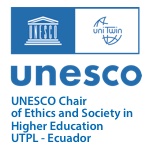Bioethics as a bridge between human dignity, social participation, human rights and sustainable development goals
Abstract
This article reviews the origins of Bioethics, and the metaphor of a bridge between the sciences and the humanities. Analyses the idea of human dignity, and its Kantian realization. Finds that the human dignity is basic to the Universal Declaration of Human Rights and to its ethical validity. From here, analyzes the ethical importance of the Sustainable Development Goals. Presents social consensus as a reference to establish the ethical quality of the evaluative aspects of a given society. The ideas of Jürgen Habermas are used to establish the ethical importance of the Universal Declaration of Human Rights. Being, thus, also useful bioethical referents in practical dilemmas.
Downloads
References
Danish Institute for the Human Rights (2020). The Human Rights Guide to The Sustainable Development Goals. https://sdg.humanrights.dk/en
Gracia, Diego (2010). «Las paradojas de la vida». Bioética complutense 3: pp. 3-5.
Kant, Immanuel (2007). Fundamentación de la Metafísica de las Costumbres. Traducción de Manuel García Morente. Edición digital de Pedro Rosario Barbosa. San Juan, Puerto Rico.
Kant, Immanuel (2013). Crítica de la razón práctica. Traducción de Roberto Aramayo. Alianza Editorial.
Marco Aurelio (2010). Meditaciones. Traducción de Ramón Bach Pellicer. Editorial Gredos. Madrid.
Organización de las Naciones Unidas (1947). Declaración Universal de los Derechos Humanos. https://www.un.org/es/universal-declaration-human-rights/
Potter, Van Rensselaer (1971). Bioethics: Bridge to the future. Englewood Cliffs, N.J.: Prentice Hall Inc.
Seneca (1909). Of the Happy Life (De Vita Beata). In Lucius Annaeus Seneca, Minor Dialogs Together with the Dialog "On Clemency". Translated by Aubrey Stewart, pp. 204–239. (Bohn's Classical Library Edition). Londres: George Bell and Sons.
Seneca (1909a). On the Firmness of the Wise Man (De Constantia Sapientis). In Lucius Annaeus Seneca, Minor Dialogs Together with the Dialog "On Clemency". Translated by Aubrey Stewart, pp. 22-47. (Bohn's Classical Library Edition). Londres: George Bell and Sons.
Solum, Lawrence B. (1989). «Freedom of Communicative Action: A theory of the First Amendment Freedom of Speech». Northwestern University Law Review 83, no. 1 & 2: pp. 54-135. https://scholarship.law.georgetown.edu/facpub/1954
ten Have, Henk A. M. J. (2012). "Potter's Notion of Bioethics." Kennedy Institute of Ethics Journal 22, no. 1: pp. 59-82. doi:10.1353/ken.2012.0003.
Thompson, Paul B. (2012). «Sustainability: Ethical Foundations». Nature Education Knowledge 3, no. 10: pp. 11. https://www.nature.com/scitable/knowledge/library/sustainability-ethical-foundations-71373239/
Copyright (c) 2020 © Analysis

This work is licensed under a Creative Commons Attribution-NonCommercial-NoDerivatives 4.0 International License.








